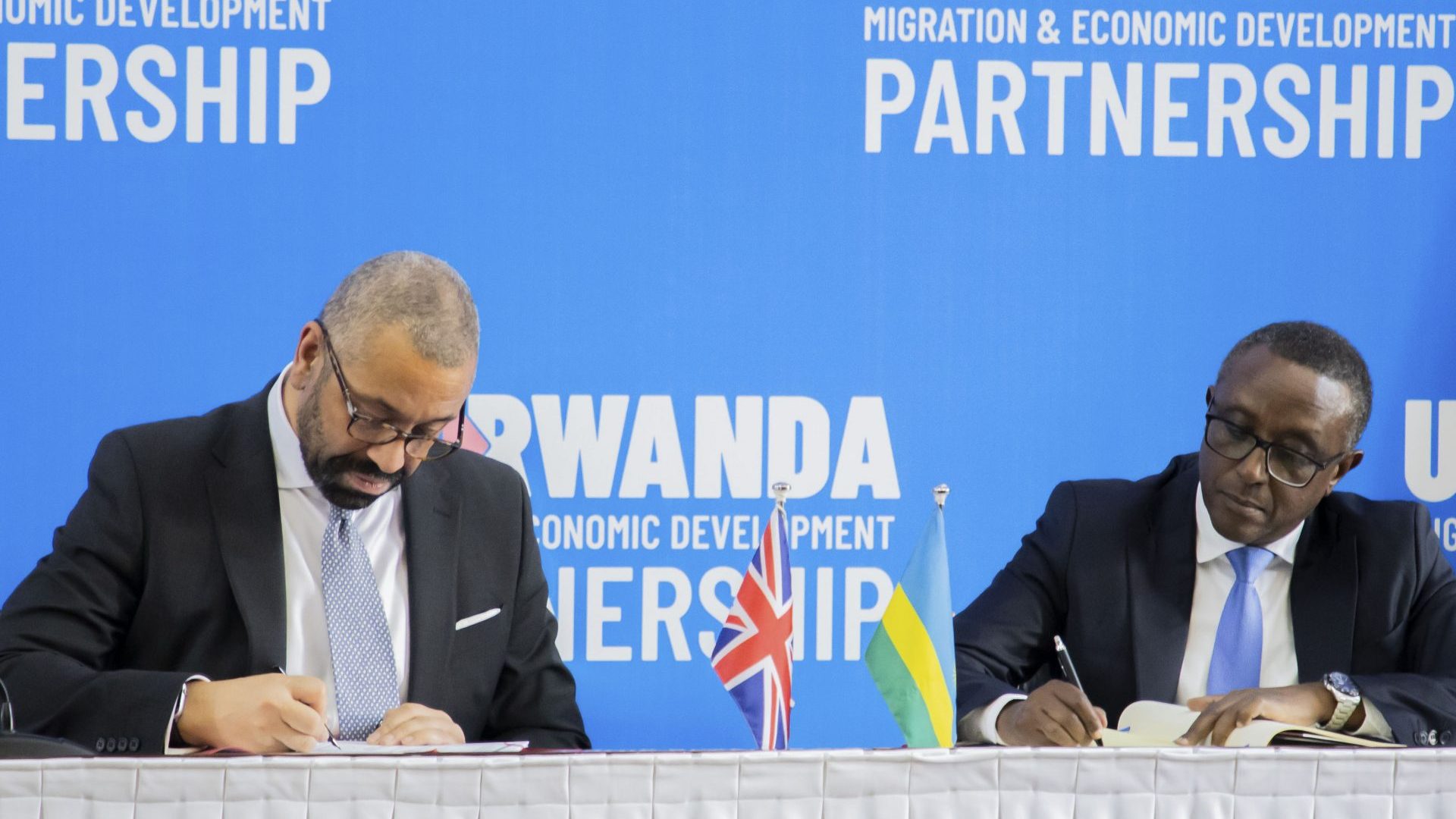The jubilation felt by those working to represent the interests of asylum seekers following the Supreme Court’s Rwanda ruling has quickly turned to dismay.
First, senior Conservative figures immediately stated their preferred approach would be ignoring the rule of law and deporting anyway. Then we learned of Rishi Sunak’s plans for emergency legislation that would somehow oust the Supreme Court’s jurisdiction to rule on the lawfulness of removals by declaring Rwanda to be safe.
And now, within three weeks, we have a new treaty supposedly addressing the extensive concerns of the five Supreme Court justices.
Suffice it to say, the workability of the Rwanda scheme is beyond the scope of this treaty. There are significant concerns over capacity and the ability of Rwanda to process more than a handful of those arriving in the UK illegally.
The Home Office says that Rwanda has the initial capacity for only 200 people. A review found that Rwanda currently processes 228 asylum applications each year, compared to over 19,000 processed in the UK, where it is estimated that 46,000 arrived by boat in 2022.
The Migration and Economic Development Partnership (MEDP) between the UK and Rwanda was completed in April 2022 at an initial cost of £120 million (although it appears that a further £120 million has also been advanced to the African state). The scheme will depend on a significant expansion of the UK’s immigration detention estate to detain those liable for removal under the Illegal Migration Act 2023.
But it is important to recognise that these plans are based on an unsupported assumption that those arriving illegally are not genuine refugees. In 2021, over three-quarters of all initial decisions made by the Home Office were successful with many more positive decisions following appeal. Thus, three-quarters of those relocated will have a well-founded fear of being persecuted for a Convention reason. Contrary to its rhetoric emphasising illegality and criminality, the UK is seeking to detain and forcibly relocate legitimate refugees.
The principle of non-refoulement is guaranteed by the United Nations 1951 Refugee Convention, as well as UK legislation. It requires that refugees are not returned to a country where their life or freedom would be threatened on account of their race, religion, nationality, membership of a particular social group or political opinion. The obligation has long been interpreted as prohibiting not only the direct return of refugees to the country where they fear persecution, but also their indirect return via a third country.
To qualify as safe, Rwanda must therefore be a country in which the principle of non-refoulement will be respected. The original MEDP also contains a statement that there are no substantial grounds for believing that removals will breach the absolute obligation of Article 3 of the European Convention (enacted into UK law under the Human Rights Act) which prohibits torture or inhuman and degrading treatment.
The majority of the Court of Appeal and all the Supreme Court judges found substantial grounds for believing that relocation to Rwanda would expose refugees to a real risk of ill-treatment and refoulement.
In examining the Rwandan asylum system, it noted that past failings were relevant to assessing future risk. Recent reports of extrajudicial killings, deaths in custody, enforced disappearances and torture, and a generally poor human rights record were ignored by ministers who relied on a desk-based review and two short visits by officials.
In one particularly serious incident in 2018, Rwandan police fired live ammunition at refugees protesting over cuts to food rations, killing at least 12 people. Since Rwanda has ratified many international human rights conventions, this must raise serious questions as to its compliance with its international obligations.
The Court identified a number of serious procedural deficiencies, including summary rejection of asylum claims without reasons, and poor quality, generic refusal letters. There are also significant concerns over judicial independence. Most alarmingly, evidence from the UNHCR revealed a 100% rejection rate for nationals of Afghanistan, Syria, and Yemen, from which asylum seekers relocated may well emanate.
The Court found that Rwandan officials did not understand the legal meaning of refoulement and noted UNHCR evidence of at least 100 allegations of refoulement and threatened refoulement. In conclusion, their lordships found “at best, inadequate understanding of Rwanda’s obligations under the Refugee Convention.”
This misunderstanding is apparently shared by government ministers here. The immigration minister, Robert Jenrick, appears entirely ignorant of well-established judicial understanding that it is almost impossible for asylum seekers to enter the UK lawfully: “The law says you can’t enter the country illegally. If you or I crossed an international border, we literally broke into another country, we would expect to be treated very seriously”.
Within three weeks, the new home secretary has negotiated a fresh treaty which apparently addresses all these criticisms. At a press conference in Kigali, seemingly ignorant of the evidence heard by the Supreme Court, Cleverly announced: “Rwanda has now established a strong reputation for the humane and professional administration of refugees and migrants.”
The main addition is an independent monitoring committee which will have oversight of reception and processing, and treatment and support of claimants for up to five years after they receive a decision. The committee will implement a complaints system and a new appeals body will be established with judges from Rwanda and other Commonwealth countries.
But the treaty does not attempt to address several significant shortcomings, and, as such, the risk of refoulement remains. The safety of Rwanda for refugees depends on wholesale change, both to the asylum support system and to judicial and political processes.
In the Supreme Court’s own assessment: “The necessary changes may not be straightforward, as they require an appreciation that the current approach is inadequate, a change of attitudes, and effective training and monitoring.”
Dr Helen O’Nions is associate professor at Nottingham Law School










